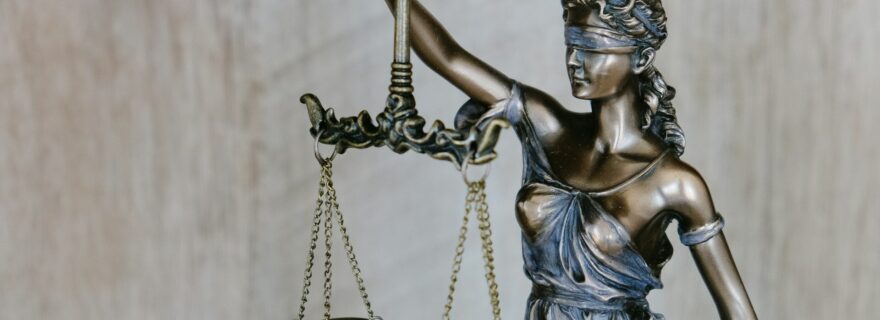Trump targets law firms aiding the disfavoured
The Executive Orders of President Trump, targeting American law firms, clash with the professional ethical duties of lawyers and threaten the very foundation of the rule of law.
What's happening?
In recent weeks, President Trump's actions against Harvard University have attracted academic attention. Yet, equally contentious presidential actions targeting law firms that have represented individuals or causes unpopular with the new U.S. Administration, have received less coverage – at least among the general public.
These include, among others, the law firm Covington & Burling, which represented the special counsel who investigated President Trump during the Biden administration; the law firm Perkins Coie, which worked for Hillary Clinton’s 2016 campaign, and Paul Weiss, whose former attorneys have also worked on cases against President Trump.
These Executive Orders include provisions such as suspending all security clearances held by employees of the targeted firms, prohibiting government contractors from retaining their services, as well as barring their attorneys from accessing government officials and federal buildings.
While some of these orders have been revoked by President Trump following agreements with certain targeted law firms, others remain in force and/or are currently being litigated before US courts.
This blog post aims to assess how the Executive Orders' impact on the ethical obligations of legal professionals, particularly concerning the principle of lawyers’ independence and their duty to act in their clients’ best interests. The analysis will focus on ethical standards for lawyers under the IBA International Principles on Conduct for the Legal Profession (IBA Principles) and the Charter of core principles of the European legal profession & Code of conduct for European lawyers (CCBE Charter).
Why the independence of lawyers matters
The first ethical principle challenged by the Executive Orders is the requirement that lawyers remain independent from the government and other powerful institutions. This is provided by Principle (a) of the CCBE Charter and Principle 1 of the IBA Principles. In this respect, Article 2.1.2. of the CCBE Charter emphasises that ‘advice given by a lawyer to the client has no value if the lawyer gives it only to ingratiate him- or herself, to serve his or her personal interests or in response to outside pressure’.
The issued Executive Orders undermine the lawyers’ ability to act independently, not only in advising clients, but even in deciding whether to accept or decline a case. Such measures can be seen as an attempt to reduce opposition to the executive branch and weaken the fundamental role of lawyers as defenders of individual rights, which is a cornerstone of democratic society.
Clients' interests under threat
Another core professional ethical duty is the obligation to pursue the client’s best interests. This duty is expressly set out in Principle (e) and Article 2.7 of the CCBE Charter, as well as in Principle 5 of the IBA Principles. As clarified in the IBA Commentary, the duty to uphold the client’s interests requires lawyers to act ‘free of the influence of any interest which may conflict with the client’s best interests’.
As mentioned above, the Executive Orders target and sanction law firms for assisting certain clients or causes disfavoured by the current US administration. This places law firms in an uneasy position. Sanctioned firms may feel compelled to sever ties with clients unpopular with the administration in the hope of having the sanctions lifted. Firms not yet sanctioned may preemptively distance themselves from such clients or causes to avoid becoming targets.
In either case, the threat of sanctions conflicts with the duty to pursue the client’s interests. Lawyers cannot represent clients freely if political pressures dictate whom they may or may not defend. This not only undermines legal ethics, but also threatens the very foundation of fair legal representation.
'Kill all the lawyers'
As noted by a group of legal ethics professors in a brief filed as amicus curiae supporting the lawsuit brought by one of the targeted law firms, ‘[a] firm that can survive only by staying in the President’s good graces has incentives that conflict with its lawyers’ stringent fiduciary duties to remain loyal to their clients’ interests, exercise independent judgment, and be truthful and candid in all dealings with the courts’.
Concerns about political interference in legal representation have also been acknowledged by the judiciary. In her memorandum opinion dated 2 May 2025, Judge Beryl A. Howell cited Shakespeare’s Henry VI, part II, referencing a scene in which a rebel proclaims that as a king, the first thing he means to do is ‘kill all the lawyers’. The scene reflects a broader truth: undermining the legal profession is a calculated strategy to erode legal protections and enable unchecked authority. Judge Howell warned that efforts to sideline lawyers pose a serious threat to the rule of law.
This political interference threatens the legal profession’s ability to operate freely and without coercion. Upholding these ethical standards is essential – not only for the protection of individual rights, but also for maintaining a fair and functioning justice system in a democratic society.
This blog was written as a follow-up to discussions in the course Legal Profession & Ethics of the Advanced Master International Civil and Commercial Law.





0 Comments
Add a comment